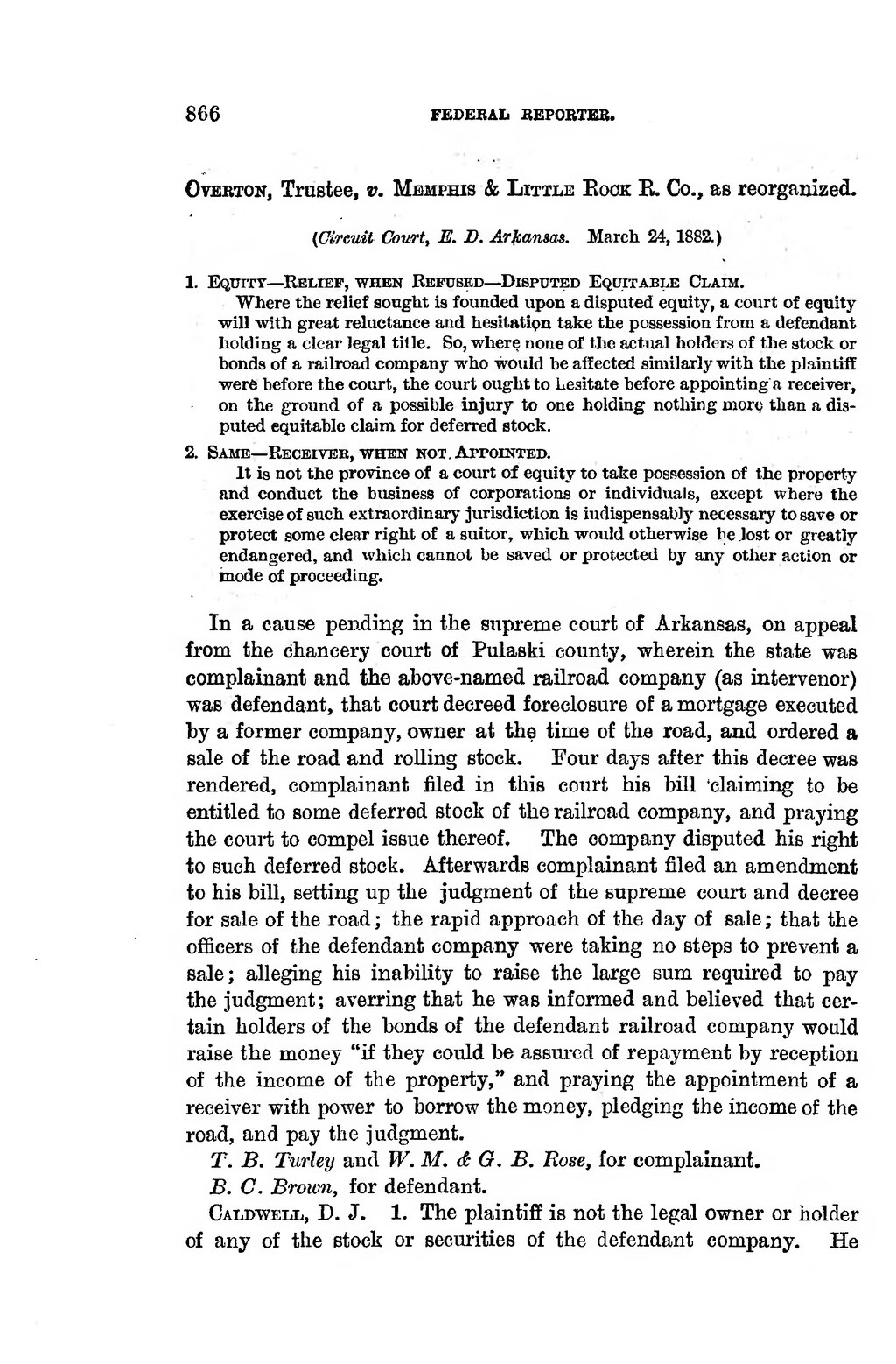866 FEDERAL REPORTBB. �OvEBTON, Trustee, v. Mbmphis & Little Eook E. Co., as reorganized. �(Oireuil Court, E. D. Arkansas. March 24, 1882.) �1. Equitt— Relief, when Rbpused— Disputed Equitable Claim. �Where the relief sought is foimded upon a disputed equity, a court of equity ■will with great reluctance and heaitatipn take the possession from a defendant holding a olear legal tille. So, where none of the actual holders of the stock or bonds of a railroad company who would be afiected similarly with the plaintiH wero before the court, the court ought to hesitate before appointing a receiver, on the ground of a possible injury to one holding nothing morc than a dis- puted equitable claim for deferred stock. �2. SAME— ReCBIVEK, WHBN ifOTApponstTBD. �It is not the province of a court of equity to take possession of the property and conduct the business of corporations or individxials, except where the exercise of such extraordinary jurisdiction is indispeasably necessary tosave or protect some clear right of a suitor, which would otherwise be lost or greatly endangered, and which cannot be saved or protected by any other action or mode of proceeding. �In a cause pending in the supreme court of Arkansas, on appeal from the ehaneery court of Pulaski county, wherein the state was complainant and the above-named railroad company (as intervenor) ■was defendant, that court deoreed foreclosure of amortgage executed by a former company, owner at the time of the road, and ordered a sale of the road and rolling stock. Four days after this decree was rendered, complainant filed in this court his bill claiming to be entitled to some deferred stock of the railroad company, and praying the court to compel issue thereof. The company disputed his right to such deferred stock. Afterwards complainant filed an amendment to his bill, setting up the judgment of the supreme court and decree for sale of the road; the rapid approach of the day of sale; that the officers of the defendant company were taking no steps to prevent a sale; alleging his inability to raise the large sum required to pay the judgment; averring that he was informed and believed that cer- tain holders of the bonds of the defendant railroad company would raise the money "if they could be assurcd of repayment by reception of the income of the property," and praying the appointment of a receiver with power to borrow the money, pledging the income of the road, and pay the judgment. �T. B. Turley and W. M. e G. B. Rose, for complainant, �B. G. Brown, for defendant. �CALDWELii, D. J. 1. The plaintiff is not the legal owner or holder of any of the stock or securities of the defendant company. He ��� �
